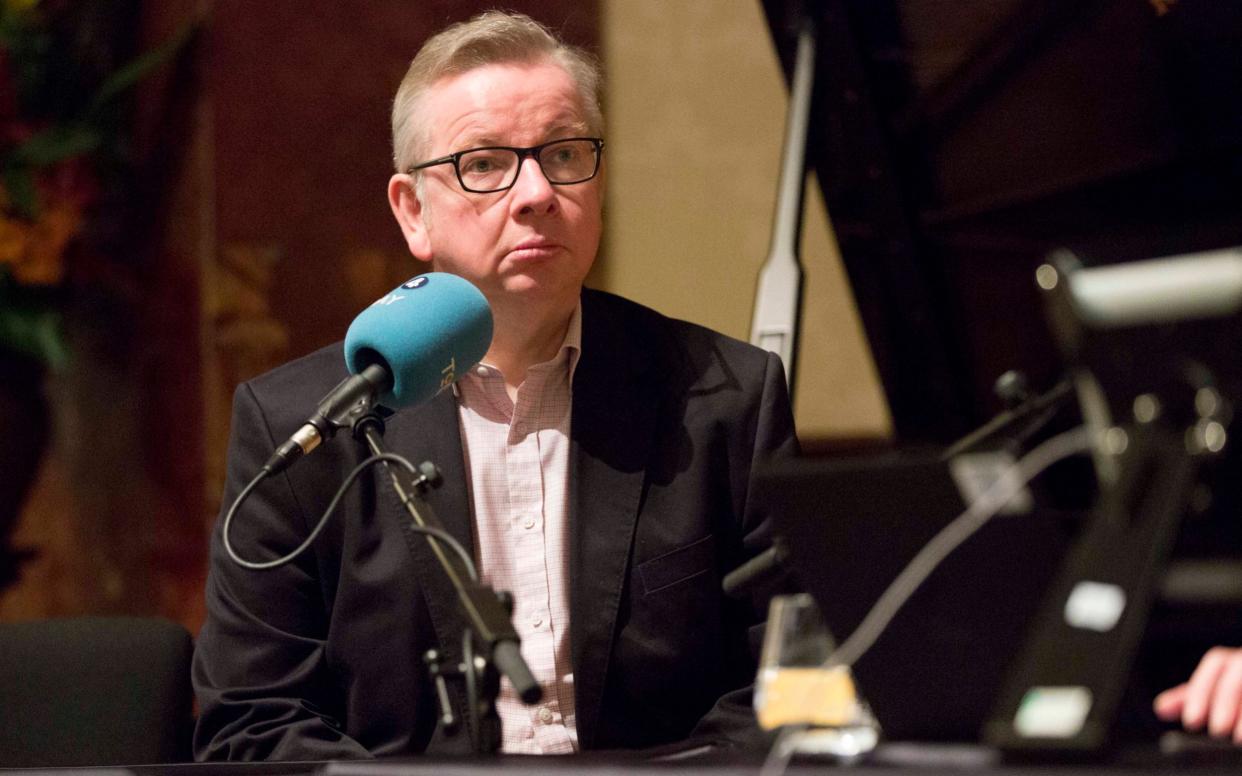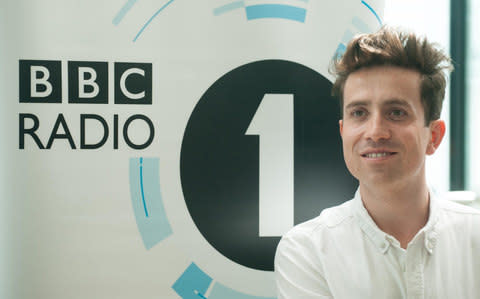By Gove, Michael did spoil Today's 60th birthday party

There’s rarely a day when I don’t think about On the Hour, Chris Morris’s masterful satire of current-affairs broadcasting, which went out on Radio 4 in the early Nineties and has lost none of its brilliance. Some earnest newscaster will unwittingly say or do something worthy of mockery, and the memories come flooding back. On Saturday, the trigger was Radio 4’s Today, which was celebrating its 60th birthday with a special edition from Wigmore Hall in London.
Now, Wigmore Hall is a venue whose curved ceiling and polished stone walls makes it ideally suited to performances of classical music. But the acoustic properties of radio news are rather different to those of Beethoven; and the sound of Sarah Montague’s voice echoing around this hallowed room as she sombrely read the headlines – “The Spanish government has moved to take direct control of Catalonia” – was delightfully surreal. As members of the audience could be heard coughing and shuffling in the background, I settled in for an enjoyable morning.
Then something rather different followed. The composer Richard Stilgoe, whose topical songs were a regular feature on Today in the Sixties, reprised this role with a new composition about the programme’s horse-racing tips segment. It waltzed along well enough, and then hit a joke about the Harvey Weinstein sexual harassment case that rang out like a broken piano key. Half an hour later, Michael Gove picked up the baton, telling John Humphrys that “sometimes I think that coming into the studio with you, John, is a bit like going into Harvey Weinstein’s bedroom”.
Gove has since apologised for this, calling it a “clumsy attempt at humour”. But the tone-deafness of his remarks, and the fact that Humphrys didn’t call him to account at the time, will have done little to cool the argument that Today – and the media in general – is still skewed heavily towards men. Hopefully, it won’t take another 60 years to change that for the better.
Every quarter, Rajar release listening figures for UK radio, and each time, I feel sorry for Ben Cooper, the controller of Radio 1. The numbers for his network are never quite where they ought to be, leaving him to make statements that positively groan with spin. This time around the headline was the breakfast show, which is at its lowest ebb since records began. The honest appraisal: Nick Grimshaw, the show’s shouty, celeb-mad host, is a flop. Cooper’s response? “Radio 1 continues to be the most relevant youth brand in the UK today”.

The news for 6 Music was more upbeat. Its audience just hit 2.4 million, maintaining its position as the UK’s most popular digital-only station. Part of the story here is technological: more people than ever – 61 per cent of the population – are now using digital radios, increasing the network’s potential audience. But a bigger part of it is that 6 Music has an enviably broad range of welcoming, unstuffy, consistently enjoyable shows, hosted by people who both know and care about music.
The best comedy and drama podcasts
Guy Garvey’s Finest Hour, on Sunday afternoons, is a particular highlight. It’s hard not to like Garvey, who also fronts the rock band Elbow and has unforced warmth, infectious curiosity and the kind of husky Manchester accent that could make even a risk assessment form sound interesting. He usually picks a theme and then embarks on a meandering musical journey around it, peppered with anecdotes, jokes, interviews and listener recommendations. This week, the golden thread was Phil Collins’s singing voice. It led to songs by Genesis, Tom Waits, Roxy Music, and Cat Stevens, to name a few. I’ve never been a Phil Collins fan, but came away feeling like I’d turned a corner.
Over the past two years, BBC Four has broadcast a handful of long unedited films of undramatic things happening: canal and bus journeys, sleigh rides, craftspeople at work. It’s called “slow television”; and, depending on your viewpoint, is either a welcome break from the currents of modern life or the most infuriating thing ever. This week, its audio counterpart, “Slow Radio”, arrived on Radio 3 in the form of five 15-minute evocations of monastic life, recorded in monasteries around the UK. There were babbling brooks, birdsong, Gregorian chants, footsteps on cloistered stone, monks softly imparting the wisdom of the ages. To be a purist about these things, it wasn’t quite slow radio, as it had been edited. But, goodness, was it welcome.
Gillian Reynolds is away

